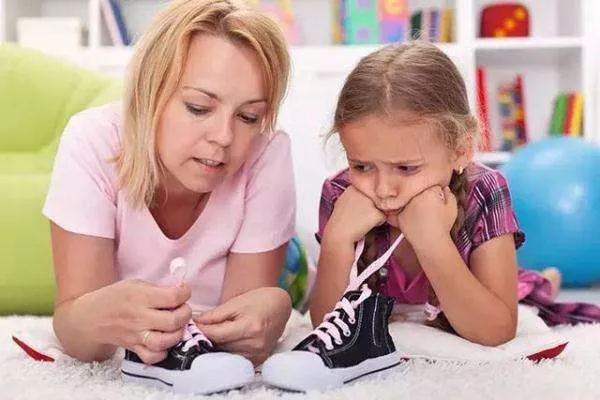Self-esteem is a fundamental aspect of psychological well-being, particularly during adolescence, a critical developmental stage. Adolescents are navigating significant changes in their bodies, emotions, social roles, and cognitive abilities, all of which can profoundly impact their self-perception. High self-esteem during adolescence is linked to better mental health, resilience, and success in various life domains, whereas low self-esteem can lead to issues such as anxiety, depression, and academic underachievement. This article explores strategies for increasing self-esteem in adolescents, providing insights and practical approaches for parents, educators, and mental health professionals.
Understanding Adolescent Self-Esteem
Self-esteem refers to an individual’s overall sense of self-worth or personal value. It involves how much a person appreciates and likes themselves, and it can fluctuate based on experiences, relationships, and internal thoughts. During adolescence, self-esteem becomes particularly volatile as teens begin to form their identity and compare themselves more to others. Several factors influence adolescent self-esteem:
Body Image: Adolescents are highly sensitive to physical appearance and often compare themselves to societal standards of beauty. Those who feel they do not measure up to these ideals may suffer from low self-esteem.
Peer Relationships: The opinions and acceptance of peers become increasingly important during adolescence. Rejection, bullying, or feeling left out can severely damage self-esteem.
Academic Performance: Success or failure in school can significantly impact an adolescent’s self-worth. Those who struggle academically may feel inferior to their peers.
Family Environment: A supportive and nurturing family environment can boost self-esteem, while criticism, neglect, or conflict within the family can harm it.
Social Media: The rise of social media has introduced new challenges, as adolescents often compare their lives to the curated, idealized versions of others they see online. This can lead to feelings of inadequacy.
Understanding these factors is the first step in addressing and improving self-esteem in adolescents. The following sections will explore strategies to enhance self-esteem from various angles.
1. Fostering a Positive Body Image
One of the most effective ways to increase self-esteem in adolescents is by promoting a positive body image. This involves helping teens appreciate and accept their bodies, regardless of how closely they align with societal beauty standards. Here are some strategies:
Encourage Healthy Habits: Focus on health rather than appearance. Encourage regular physical activity, balanced nutrition, and adequate sleep, emphasizing that these habits contribute to overall well-being, not just physical appearance.
Challenge Media Stereotypes: Educate adolescents about the unrealistic and often digitally altered images they see in the media. Help them understand that these representations are not accurate reflections of real life.
Promote Self-Acceptance: Encourage adolescents to focus on what their bodies can do rather than how they look. This shift in focus can help them appreciate their bodies for their strength, endurance, and ability to perform daily tasks.
Provide Positive Role Models: Introduce adolescents to role models who embody body positivity and self-acceptance, emphasizing that self-worth is not determined by physical appearance.
2. Strengthening Peer Relationships
Peer relationships play a crucial role in adolescent self-esteem. Positive, supportive friendships can boost self-worth, while toxic or negative relationships can have the opposite effect. Here’s how to help adolescents navigate peer relationships:
Encourage Positive Social Interactions: Facilitate opportunities for adolescents to engage in social activities that foster positive interactions, such as team sports, clubs, or volunteer work.
Teach Social Skills: Some adolescents may struggle with making and maintaining friendships due to a lack of social skills. Teaching effective communication, empathy, and conflict resolution can help them build stronger, more positive relationships.
Address Bullying: Bullying can have a devastating impact on self-esteem. It is crucial to address any signs of bullying immediately, whether the adolescent is a victim or a perpetrator. Schools, parents, and counselors should work together to create a safe and supportive environment.
Promote Inclusivity: Encourage adolescents to be inclusive and kind to others, fostering an environment where everyone feels accepted and valued.
3. Supporting Academic Success
Academic achievement is closely tied to self-esteem in adolescents. Success in school can enhance self-worth, while struggles can lead to feelings of inadequacy. However, it’s important to approach academic success in a way that doesn’t add undue pressure:
Set Realistic Goals: Help adolescents set realistic and attainable academic goals. This can prevent the frustration and low self-esteem that often result from setting the bar too high.
Provide Support and Resources: Offer the necessary support to help adolescents succeed academically, whether through tutoring, study groups, or extra time with teachers. Recognize and address any learning difficulties or disabilities that may be affecting their performance.
Emphasize Effort Over Results: Encourage a growth mindset by praising effort and perseverance rather than just results. This helps adolescents understand that failure is a natural part of learning and does not diminish their worth.
Balance Academics with Other Interests: Encourage adolescents to pursue extracurricular activities they enjoy, whether in the arts, sports, or community service. Success in these areas can enhance their self-esteem and provide a well-rounded sense of accomplishment.
See Also: How Confidence Makes You Attractive?
4. Creating a Supportive Family Environment
A supportive family environment is essential for healthy self-esteem in adolescents. Parents and caregivers play a crucial role in shaping how adolescents perceive themselves. Here’s how to create a nurturing environment:
Express Unconditional Love: Adolescents need to know that they are loved and valued for who they are, not just for their achievements or behavior. Expressing unconditional love helps them develop a strong sense of self-worth.
Provide Consistent Support: Be there for adolescents during both successes and failures. Celebrate their achievements and provide comfort and guidance during tough times. Consistent support builds resilience and self-esteem.
Avoid Negative Comparisons: Comparing adolescents to their siblings, peers, or others can damage their self-esteem. Instead, focus on their unique strengths and encourage them to develop their talents.
Encourage Open Communication: Create an environment where adolescents feel comfortable sharing their thoughts and feelings. Listening to them without judgment reinforces their sense of worth and helps them navigate challenges.
5. Navigating Social Media Influence
Social media has become an integral part of adolescent life, but it can also negatively impact self-esteem. Here are strategies to help adolescents use social media in a healthy way:
Promote Media Literacy: Teach adolescents to critically evaluate the content they see on social media. Help them understand that much of what is posted is curated and may not reflect reality.
Encourage Mindful Use: Encourage adolescents to be mindful of how they use social media. Suggest limiting time spent on social media platforms and taking breaks when they feel overwhelmed.
Model Healthy Behavior: Set an example by using social media in a positive way. Show adolescents how to use social media to connect with others, share positive experiences, and express themselves creatively.
Discuss the Impact: Have open conversations about the impact of social media on self-esteem. Encourage adolescents to share their feelings and experiences, and offer guidance on how to handle negative emotions triggered by social media.
6. Building Emotional Resilience
Emotional resilience—the ability to cope with and recover from adversity—is a key factor in maintaining healthy self-esteem. Adolescents who are emotionally resilient are better equipped to handle challenges without their self-esteem being compromised:
Teach Coping Skills: Help adolescents develop healthy coping strategies, such as problem-solving, relaxation techniques, and seeking support from trusted individuals.
Encourage Self-Reflection: Encourage adolescents to reflect on their experiences and emotions. Journaling, for example, can help them process their thoughts and gain insight into their feelings.
Promote Positive Self-Talk: Teach adolescents to recognize and challenge negative self-talk. Encouraging them to replace self-critical thoughts with positive affirmations can significantly boost self-esteem.
Foster Independence: Allow adolescents to take on responsibilities and make decisions. This builds confidence in their abilities and reinforces their sense of self-worth.
Conclusion
Increasing self-esteem in adolescents is a multifaceted process that requires attention to various aspects of their lives, including body image, peer relationships, academic success, family environment, social media use, and emotional resilience. By fostering a positive and supportive environment, encouraging healthy habits, and teaching valuable life skills, parents, educators, and mental health professionals can help adolescents develop a strong sense of self-worth that will serve them well into adulthood. Ultimately, the goal is to empower adolescents to recognize their inherent value and to navigate the challenges of life with confidence and resilience
Related Topics:




















